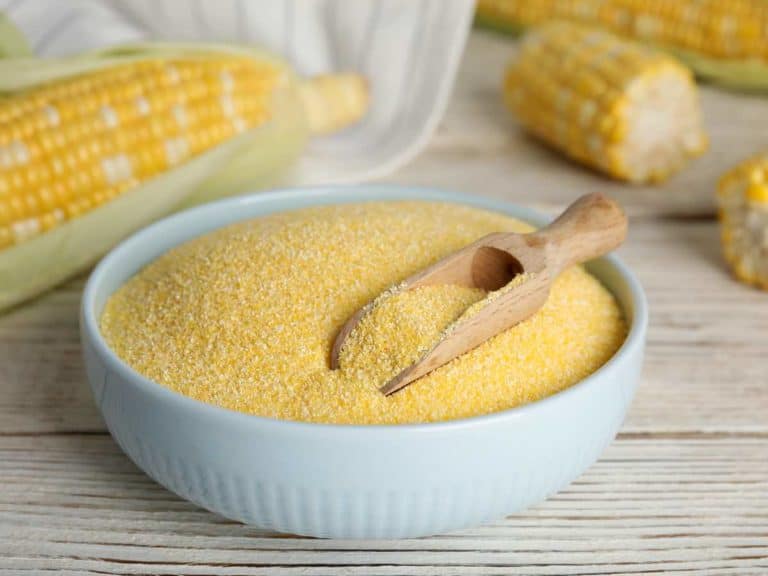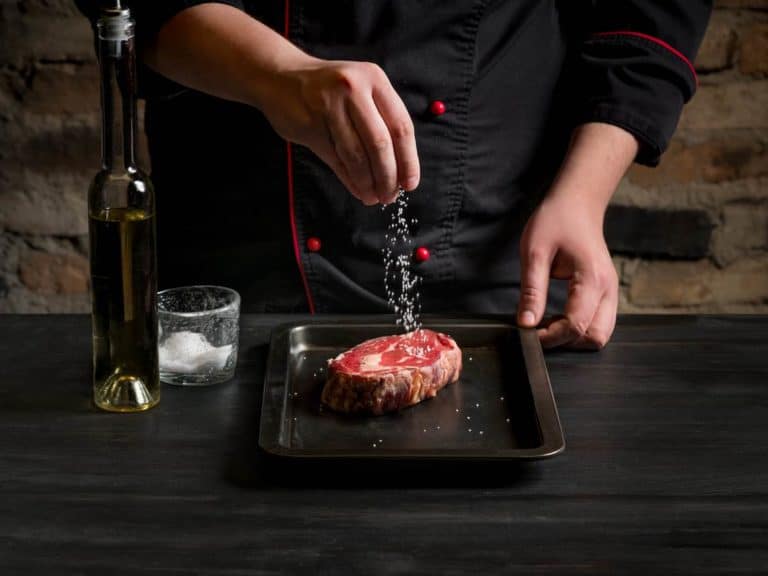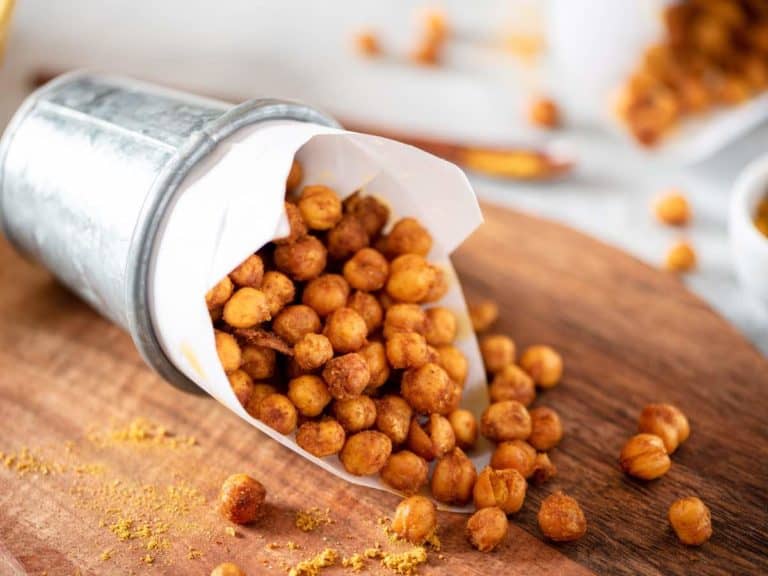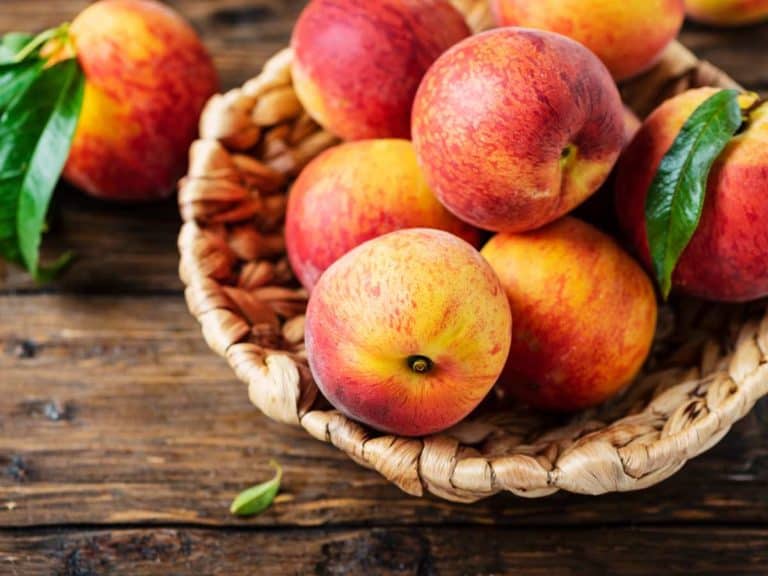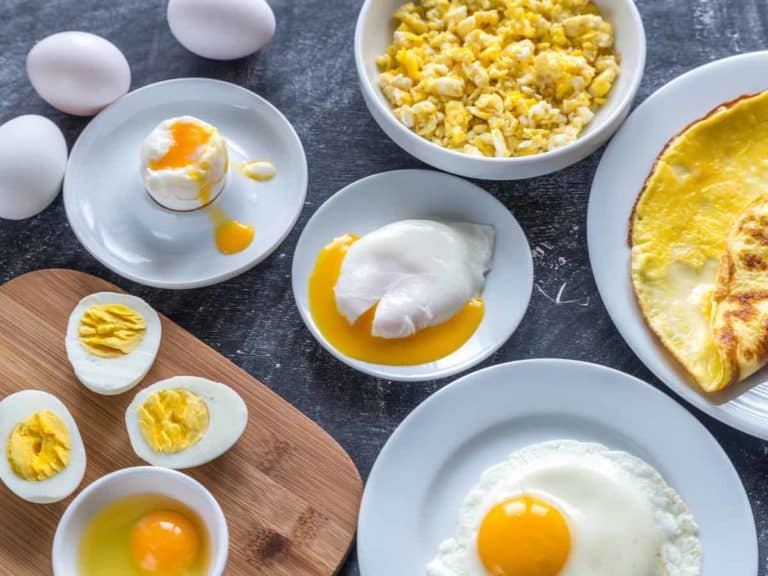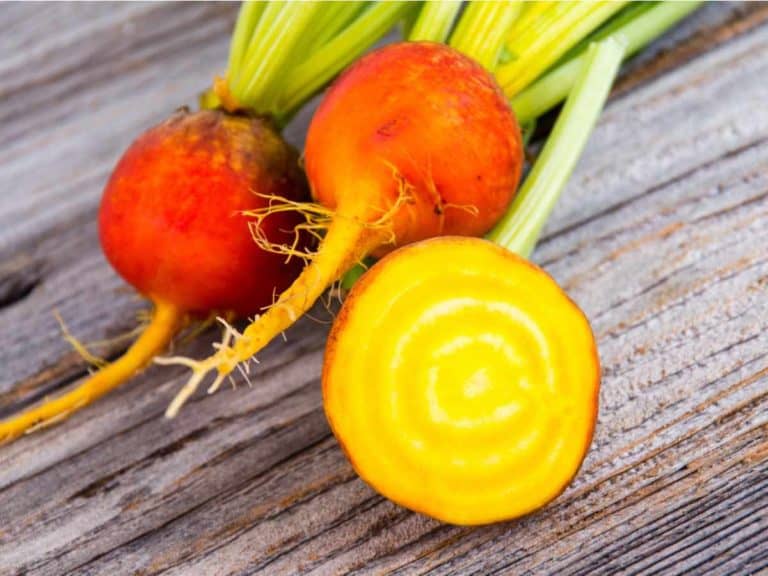Here’s What Happens If You Refrigerate Bananas
Bananas are incredibly cheap and available all year round. However, it doesn’t mean that it’s okay to let them overripe and end up brown. Many people strongly advise against storing bananas in the fridge.
Why so?
Refrigerating bananas will stop the ripening process. However, the peel will continue to turn brown, and the fruits themselves will start to rot after 10 days. Ripe bananas will no longer ripen further in the refrigerator. Green bananas will not ripen at all even if they are taken out of the fridge.
Bananas are packed with blood pressure-lowering potassium. Similarly, these tropical fruits are surrounded by a lot of myths, particularly in terms of storing them the right way.
Failure to store bananas correctly will cause the peel to become brown and the flesh to become mushy and, ultimately, keep you from enjoying the health perks bananas offer.
Continue reading to know the many different reasons why it is a much better idea to refrigerate bananas, despite what a lot of people believe, rather than place them in a fruit bowl with other fresh produce.
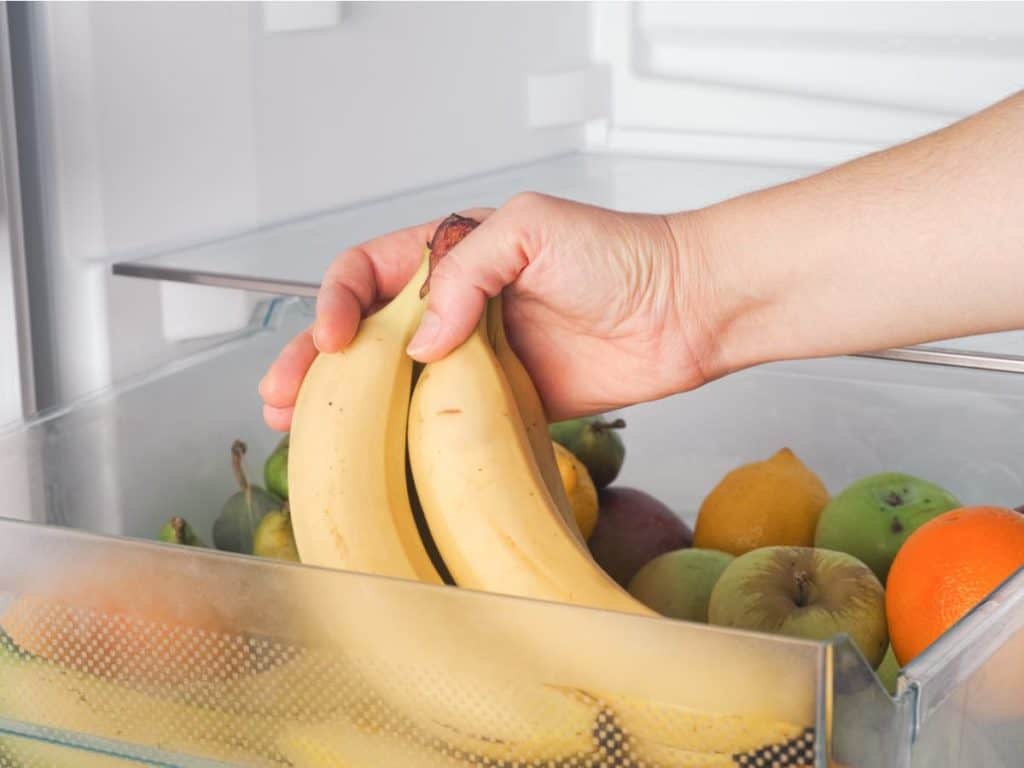
First Things First: Why Go Bananas for Bananas?
Especially if you are a budget-conscious person, there is only one reason why it’s a fantastic idea to get your hands on bananas.
And it’s none other than the fact that they are some of the cheapest fruits on the planet. In the US, a pound of them is sold for about $0.60 only.
But if you are someone who wants to live a long and happy life, it’s taking advantage of the many amazing banana health benefits why your kitchen should never be without a bunch of these tropical gems.
Let’s take a quick look at some of the reasons why bananas are good for you:
- Lowered blood pressure. A medium-sized banana contains enough potassium to provide nearly 10% of your daily needs of the said mineral. It’s important to supply your body with enough potassium to keep the blood pressure within the normal range, thus lowering your risk of heart attack, stroke and heart disease.
- Strengthened immune system. Not a lot of people know that bananas are rich in vitamin C, which is why eating them on a regular basis can help keep your immune system strong. Vitamin C is also a role player when it comes to keeping your gums healthy and your skin and nails beautiful.
- Alleviated pins and needles sensation. There is another vitamin that bananas are packed with, and that’s vitamin B6. Also called pyridoxine, this nutrient helps keep the nervous system in excellent shape. If you are experiencing pins and needles in your hands and feet (neuropathy), try eating more bananas.
- Regulated bowel movements. Bananas are rich in fiber. As a matter of fact, a medium-sized banana can provide up to 12% of your daily fiber needs. This is why bananas are very good for fending off constipation. Just make sure that you drink plenty of water, too, to avoid ending up even more constipated!
- Eliminated excess pounds. Since they are high in fiber, bananas can be very filling. This is why adding them to your diet can help fend off overeating, thus helping you to shed off unwanted weight. However, avoid consuming too many bananas, or else the calories and pounds will add together.
- Reduced acid reflux symptoms. Do you often suffer from heartburn due to acid reflux? Taking antacids all the time is a bad idea, especially if you have kidney diseases. Snacking on a banana is an all-natural way to deal with heartburn as it coats and protects the inner lining of the stomach and esophagus.
With so many health perks to offer, it’s a must that you and your loved ones have quick access to bananas every single time. And for that to happen, you should know how to store bananas the right way.
Shopping for the Right Bananas
Before you successfully extend the life of bananas by storing them properly, there is one important step that you need to take first.
And it’s none other than placing in your shopping cart the perfect bananas to store at home.
Green bananas versus yellow bananas — both of them are available at most supermarkets.
It’s important to choose the right bananas if you don’t want to snack on bitter fruits or munch on excessively sweet fruits. When deciding which bananas you should opt for, consider the following:
- Do you step foot inside the local supermarket every other week only? Then go for green bananas. It will take green bananas up to five days to ripen. And once they are yellow, it will take them another five days to become overripe. If it will take you more than a week to eat a bunch of bananas, pick green ones.
- Are you planning to consume every banana in just a matter of days or bake them ASAP? Then yellow bananas are the ones for you. Going for them does not involve waiting for a few days to enjoy perfectly ripe bananas. Yellow bananas are suited for those who can take a trip to the supermarket anytime.
No matter the case, one thing is for sure: stay away from bananas that are brown or spotty!
That’s because they have been sitting on the display for several days already, and it’s very much likely that their flesh is already mushy and too sweet.
Immediately return bananas to where they came from if they are no longer nice in your eyes and to your touch, and then look for a different bunch or head to another store.
How supermarkets keep bananas fresh
Supermarkets keep bananas fresh by importing them while they are still green. Upon arriving, green bananas are sprayed with ethylene gas to turn them into yellow bananas quickly. Bananas are displayed as soon as they are yellow, making them look like they have just been picked from banana trees.
Did you know that people in the US consume about 6.4 billion pounds of bananas every year?
And did you know that up to 94% of bananas were imported from banana-producing countries?
Because bananas tend to ripen quickly, it is a waste of money to order ripe bananas from counties miles away — they will get to the US overripe or already rotten. Once green bananas hit US stores, they are exposed to ethylene gas to make them ripe all of a sudden. Later, we will talk more about ethylene gas — so keep on reading.
Why stores sell any ripe bananas
Some stores do not sell ripe bananas not because they cannot order ripe bananas but because they do not want to waste money. Failure to sell ripe bananas on time will leave them with overripe bananas that consumers stay away from. To avoid losing profits, some stores deliberately sell green bananas.
It’s perfectly fine to shop for green bananas. Allowing them to stay at room temperature at home will cause them to ripen anywhere from one to five days.
Storing green bananas in a paper bag together with ripe bananas (or other ripe fruits) can help speed up the ripening process.
Doing this will turn green bananas into yellow bananas in just 24 to 72 hours.
Never store green bananas in the refrigerator because it will keep them from ripening for good!
How to Store Ripe Bananas for a Long Time
Bananas can be extremely filling, which is why you may find it impossible to eat an entire bunch of bananas in just a few days before each one of them ends up overripe.
This is when the importance of storing bananas the right way comes in. Proper storage allows you to enjoy perfect bananas each time you want to have some.
Yellow bananas and green bananas require different storage methods, which is why you should first know the answers to important storage-related questions such as “what happens if you refrigerate bananas?” before you shop.
If some of your family and friends warn you against refrigerating bananas while others strongly encourage you to store them in the refrigerator, read on.
Below you will come across everything you need to know about storing yellow bananas and green bananas correctly to avoid food wastage.
Storing Ripe Bananas in the Refrigerator
Ripe bananas can be stored in the refrigerator. As a matter of fact, it is the ideal way to store ripe bananas. Refrigerating them will stop the ripening process. However, it’s important to avoid storing them in the fridge with overripe fruits and vegetables as they will end up overripe, too.
The reason why ripe bananas can have a longer shelf life in the refrigerator is that they are very well protected from light and heat.
To protect them from air exposure, place ripe bananas in a Ziploc bag before refrigeration. Don’t forget to squeeze out as much air as possible from the bag before sealing it.
Storing ripe bananas in a ziploc bag also protects them from coming into contact with ethylene gas coming from ripe fruit and vegetables also in the refrigerator.
In the fridge, the peel will keep on turning brown. Worry not because the fruit inside won’t turn brown.
How does ethylene gas cause bananas to ripen
Ethylene gas emitted by bananas can cause a chemical reaction, which leads to the ripening of bananas. Since bananas are tropical fruits, refrigerating them can stop the said chemical reaction from taking place. This is why storing green bananas in the fridge will keep them from ripening.
However, it doesn’t necessarily mean that ethylene gas no longer has an effect on bananas. It still has an effect on bananas.
Due to this, you should avoid storing bananas in the fridge right next to ripe or overripe fruits and vegetables as they also give off ethylene gas.
Remove overripe ones from the refrigerator, or make sure that you store them in their own ziploc bags.
Can You Refrigerate Peeled Bananas?
Peeled bananas can be refrigerated to keep them from turning brown. Sliced bananas can be kept in the fridge, too, for the same reason. They should be placed in an airtight container or a Ziploc bag beforehand. Peeled or sliced bananas may be lightly coated with lemon juice.
What causes peeled or sliced bananas to turn brown is exposure to oxygen in the air. It’s for the same reason why apples, pears, peaches and other fruits turn brown when peeled, sliced or chopped.
To delay the browning of peeled or sliced bananas, they can be coated with lemon juice. Ascorbic acid or vitamin C in lemon juice is the one that will react with the oxygen in the air rather than bananas.
For as long as there is still ascorbic acid from lemon juice, peeled or sliced bananas won’t turn brown.
Peeled or sliced bananas lightly coated with lemon juice should be stored in the refrigerator for best results.
Needless to say, the presence of a little lemon juice will change the taste of bananas to a certain extent.
Due to this, you will have to choose between eating brown bananas that taste like ripe bananas and beautiful ripe bananas that kind of taste like lemon juice.
Storing bananas in the freezer
Bananas can be stored in the freezer where they will keep for up to six months. They should be placed in a Ziploc bag first. Before storing bananas in the freezer, it is a good idea to peel them beforehand. Bananas can be hard to peel when they are frozen.
Other than extending the shelf life, bananas can be stored in the freezer for other reasons, too. For instance, frozen bananas make for healthier alternatives to ice pops.
Are you into drinking healthy smoothies?
Then it’s a wonderful idea to peel and freeze bananas that you use for making smoothies.
Each time you make a serving of your kind of beverage, all you have to do is drop a frozen banana or two into the blender and then blend away.
It’s possible to freeze unpeeled bananas if you are always in a hurry and don’t have the time to peel them beforehand.
However, this is counterproductive as it can be extremely difficult to peel bananas while they are rock-hard. Waiting for them to thaw before peeling them can also take up much of your precious time.
How to Store Ripe Bananas for Baking
Ripe bananas for baking purposes should be stored in the refrigerator to keep them from ripening further and, ultimately, rotting. However, overripe bananas should be kept from getting moldy or being infested with fruit flies by refrigerating them.
If you often find yourself throwing away overripe bananas, there is something that you may do.
It’s none other than learning how to bake banana bread, the recipe for which usually calls for the use of overripe bananas.
Just because overripe bananas are brown, mushy and terribly sweet doesn’t mean that they are no longer good for you.
By turning them into baked goodies, you can still enjoy the many health-giving perks bananas are known to offer. If you don’t want to bake, you can use overripe bananas as smoothie ingredients.
Whether for baking or making smoothies, remember to store overripe bananas in the fridge to save them from ripening further and eventually rotting. Just make sure that you use all of them within five to seven days.
Should You Dehydrate Ripe Bananas or Raw Bananas
When it comes to dehydrating bananas, ripe bananas are recommended more than green bananas. Green bananas do not taste sweet. Also, green bananas have to spend more time in the dehydrator. Overripe bananas can take a while to dehydrate, too, just like green bananas.
One of the nicest things about bananas is that they can be enjoyed in many ways. For instance, they can be turned into healthy chips by slicing them thinly and then allowing them to dry up.
To enjoy the best dehydrated bananas, make sure that you slice them thinly and evenly, and place them neatly in the trays of your dehydrator.
Leave them there to dehydrate for up to eight hours at 135°F.
Keep a close eye on them for the last couple of hours so that you may remove them from the food dehydrator once they reach your preferred texture.
Dehydrated bananas can keep for up to five years if properly dehydrated and stored in a cool and dry place. You can extend their shelf life for a few more months by storing them in the refrigerator.
Related Post: Best Dehydrators For Fruits And Vegetables
Just Before You Attempt to Refrigerate Bananas
Many people believe that refrigerating bananas will make these tropical fruits ripen at a much faster rate.
However, if truth be told, it is a much better idea to refrigerate bananas than leave them on a countertop.
Placing bananas in the refrigerator stops the ripening process or slows it down considerably. Because of this, you can avoid snacking on overripe bananas that are mushy and too sweet.
When stored in the refrigerator, ripe bananas can stay in excellent condition for up to 10 days.
Bananas may also be stored in the freezer where they will keep for up to six months.
However, before you refrigerate bananas, make sure that they are ripe. Storing unripe bananas in the fridge will keep them from getting ripe. This is true even if you take them out of the refrigerator.
